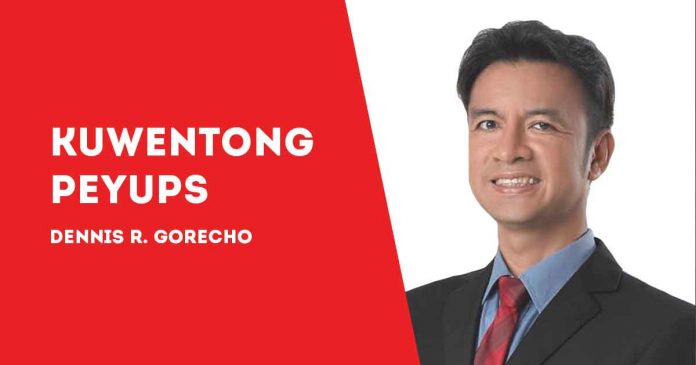
THE 3,992 law graduates who successfully passed the 2022 Bar exams will be the first batch to be sworn under the new Lawyer’s Oath .
The results of the November 2022 Bar Exams were released on April 14, 2023 where successful examinees comprise 43.47% of 9,183 takers.
Last year’s Bar exams were the second to be held digitally and across multiple testing sites across the country.
Of the top 30 passers, 11 were from the University of the Philippines (UP), eight from the Ateneo de Manila University, three from the University of San Carlos and one each from San Beda College Alabang, Mariano Marcos State University, Ateneo de Zamboanga, Saint Louis University, University of Santo Tomas, Arellano University, Manuel L. Quezon University, Angeles University Foundation, and Ateneo de Davao.
The five top-notchers came from UP led by its valedictorian Czar Matthew Dayday with a score of 88.8083 percent. UP is also one of the top three performing school with an overall passing rate of 94.27 percent, and a 95.02 percent passing rate among first-time takers.
Among the group of biggest schools or those with over 100 takers, ADMU had the highest passing rate at 96.74 percent, followed by San Beda at 96.67 percent, UP at 94.27 percent, USC at 91.43 percent, and the University of Santo Tomas at 78.09 percent.
The previous batch 2020-2021 yielded 8,241 out of 11,402 (72.28%) aspiring lawyers who passed.
The highest passing rate was the 1954 Bar, where 75.17% passed.
The lowest was in 1999 with 16.59% or a total of 660 successful examinees. My Bar buddy and former solicitor general Florin Hilbay was the topnotcher.
The Bar exam is a yearly spectacle on the performance of law schools measured in the most number of topnotchers or those scoring the highest passing rates.
The Bar exams is considered one of the toughest and most difficult among the professional board exams, having one of the highest mortality rates. Passing is obviously not that easy.
I was among the lucky 1,465 examinees who passed, or 39.63 percent out of the 3,697 examinees of the 1998 Bar exams held in DLSU.
I belong to the working student program of UP Law as a reporter for the TODAY broadsheet and other international news agencies. I do my coverage during the day then attend my evening classes. I read my cases in the bus on the way home to Las Piñas from Diliman, always looking for the seat with the strongest headlight.
Traversing the path of legal education was hard to the exponential power, as we immersed ourselves in law books and cases, faced terror professors, pore through volumes and pages of SCRAs, lined up for photocopying at the law library, hurried through classes, reviewed and crammed through lessons, and survived recitations.
The successful examinees will be sworn using the new lawyer’s oath as part of the new Code of Professional Responsibility and Accountability (CPRA).
The new oath states: “I (name) do solemnly swear that I accept the honor, privilege, duty, and responsibility of practicing law in the Philippines as an officer of the court, in the interest of our people. I declare fealty to the Constitution of the Republic of the Philippines. In so doing, I shall work towards promoting the rule of law in a regime of truth, justice, freedom, love, equality, and peace. I shall conscientiously and courageously work for justice as well as safeguard the rights and meaningful freedoms of all persons, identities, and communities. I shall ensure greater and equitable access to justice. I shall do no falsehood nor shall I pervert the law to unjustly favor or prejudice anyone. I shall faithfully discharge these duties and responsibilities to the best of my ability, with integrity and utmost civility.”
The new code revises the 34-year-old Code of Professional Responsibility that was promulgated in 1988.
It consolidates regulations on the discipline of lawyers, abbreviates administrative proceedings, and addresses the punitive aspect of unethical legal practice.
My UP Law professor and Senior Associate Justice Marvic Leonen said that the revision of the current oath is imperative as it did not mention a lawyer’s most important duty “to do justice or even to ensure access to justice.”
Leonen reminded lawyers of the importance of civility, especially in adversarial conflict, as parties to cases “are deserving of better treatment always as human beings.”
Ultimately, being a good lawyer is a different thing. Passing the bar is not enough. It is never the measure of the decency, honesty, integrity and intelligence of a lawyer.
The lawyer’s oath “binds all lawyers as a source of obligations such that its violation is a ground for suspension, disbarment, or disciplinary action.”
Lawyers, as professionals, are expected to uphold the ethical and moral values that are said to be essential to the fabric that holds society together.
***
“Peyups” is the moniker of University of the Philippines.
***
Atty. Dennis R. Gorecho heads the seafarers’ division of the Sapalo Velez Bundang Bulilan law offices. For comments, e-mail info@sapalovelez.com, or call 09175025808 or 09088665786./PN



